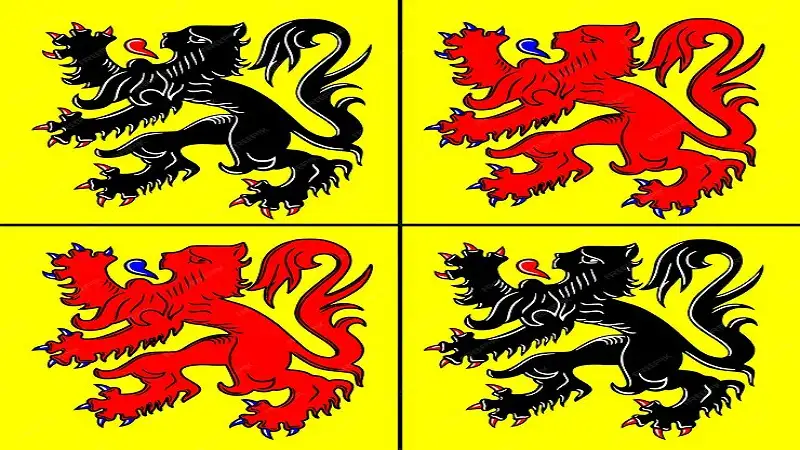The global semiconductor industry is a battleground for technological and geopolitical influence, with Dutch companies playing a pivotal role. Among them, NXP Semiconductors, a leading Dutch enterprise, stands as a key player in this complex arena. The term “Dutch Chimera” aptly describes the multilayered relationship between the Netherlands and China, as reflected in the operations of NXPShilov. This article explores the intricate dynamics of the Dutch Chimera ChinaLinked Dutch NXPShilov, uncovering its economic significance, technological prowess, and geopolitical implications.
The Dutch Chimera and Its Link to NXPShilov
The phrase Dutch Chimera represents the multifaceted interactions between Dutch technology giants and China’s growing influence in the semiconductor market. NXP, headquartered in Eindhoven, Netherlands, exemplifies this dynamic. Its products power critical technologies, from autonomous vehicles to IoT applications, making it indispensable in the global semiconductor ecosystem.
For NXPShilov, China serves as a vital partner and a challenging competitor. This relationship has fueled debates about economic interdependence, intellectual property security, and global trade policies.
China-Linked Dutch NXPShilov: A Key Market Connection
China accounts for a significant portion of NXP’s revenue, primarily driven by its booming automotive and consumer electronics sectors. This strong market presence has earned NXP the label China-linked Dutch NXPShilov, underscoring its deep integration into the Chinese economy.
Economic Opportunities in the Chinese Market
- Automotive Innovation:
NXP is a leading supplier of chips for automotive applications, a sector where China excels. The company’s semiconductors power everything from electric vehicles to advanced driver-assistance systems (ADAS), making it a cornerstone of China’s automotive transformation. - IoT and Smart Cities:
With China’s rapid urbanization and focus on smart city technologies, NXP’s IoT solutions align perfectly with the country’s technological ambitions.
While these opportunities are lucrative, they come with risks tied to over-reliance on a single market and potential exposure to regulatory shifts.
Geopolitical Implications of the Dutch Chimera
The China-linked Dutch NXPShilov highlights the intersection of economic collaboration and geopolitical tensions. The ongoing U.S.-China trade war and international export controls on semiconductor technology have created challenges for NXP’s operations.
The Role of the U.S. in Dutch Semiconductor Policies
The U.S. has pressured allied nations, including the Netherlands, to restrict technology transfers to China. Dutch semiconductor giant ASML faced similar scrutiny when its lithography machines were barred from being exported to Chinese companies. NXPShilov, as a key player, must navigate these constraints while maintaining its market presence in China.
Intellectual Property and Security Concerns
One of the core challenges for China-linked Dutch NXPShilov is protecting its intellectual property. Operating in China involves risks of forced technology transfers and IP theft, raising alarms among Western technology firms.
Strategic Responses by NXPShilov
To counter these challenges, Dutch NXPShilov has adopted several strategic measures:
- Diversification of Markets:
NXP has expanded its operations in North America, Europe, and Southeast Asia to reduce reliance on China. This diversification enhances resilience against market disruptions. - Investments in Emerging Technologies:
By focusing on 5G, AI, and quantum computing, NXP ensures its position as a leader in innovation while reducing vulnerability to geopolitical pressures. - Sustainability Initiatives:
NXP’s commitment to environmental sustainability strengthens its global reputation and aligns with evolving regulatory standards.
The Dutch Government’s Role in the Dutch Chimera
The Dutch government plays a crucial role in shaping policies that impact companies like NXPShilov. As a member of the European Union, the Netherlands must balance economic interests with security concerns when dealing with China.
Export Controls and Strategic Autonomy
Export restrictions, particularly on advanced semiconductor technologies, reflect the EU’s desire to maintain strategic autonomy. For China-linked Dutch NXPShilov, these controls create both challenges and opportunities to innovate within regulatory frameworks.
The Future of Dutch Chimera and NXPShilov
As a symbol of the Dutch Chimera, NXPShilov’s future lies in its ability to adapt to an ever-changing global landscape. The company’s success will depend on:
- Strengthening partnerships in emerging markets.
- Investing in advanced technologies.
- Balancing economic ties with China against geopolitical considerations.
By fostering innovation and ethical practices, China-linked Dutch NXPShilov can maintain its leadership in the semiconductor industry while addressing global challenges.
In conclusion the story of Dutch Chimera Chinalinked Dutch NXPShilov is a microcosm of the broader trends shaping the global semiconductor landscape. Balancing opportunity and risk, NXPShilov exemplifies the complexities of international trade, technological innovation, and geopolitical strategy. As the industry evolves, this Dutch technology giant will remain a vital player in the global quest for technological supremacy. Read More famebetter.com.
